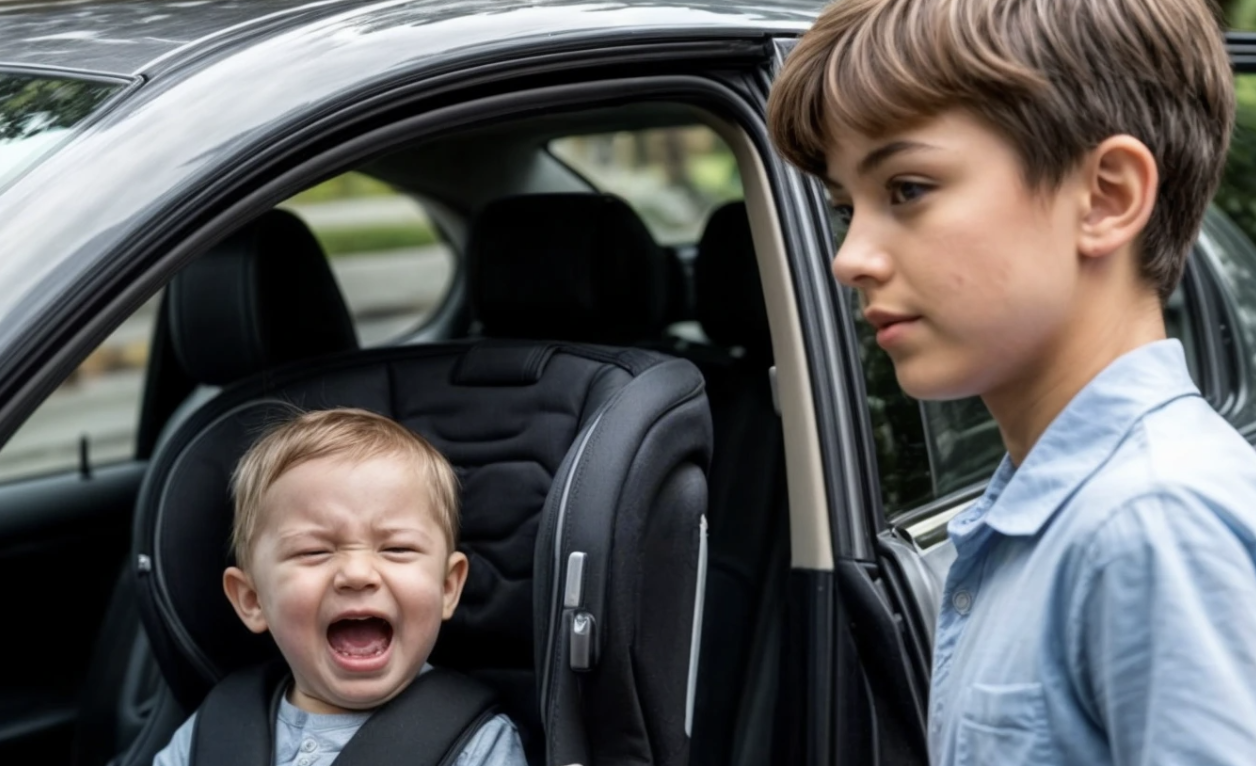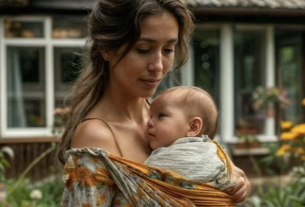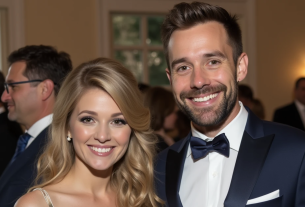That day was motionless, like a sunset flooded with lead. The air wasn’t just still — it seemed to press down to the ground, thick, dense, heavy like molten iron. Everything around froze under an invisible dome of heat. Not a single leaf stirred on the trees, not a single bird pierced the air with its cry. The sun didn’t shine — it scorched, mercilessly burning through clothes as if trying to reach the very skin.
Novorossiysk woke up slowly, somewhat reluctantly. In summer, the city seemed blurred at the edges, as if someone had splashed water over it — houses, streets, and faces of passersby lost their sharpness, becoming soft, shapeless. Window curtains in the houses were tightly drawn, only occasionally revealing the shadow of an air conditioner behind them. Above the sidewalks, a shimmering haze trembled as if the earth was evaporating from the heat. The clock showed quarter to eight in the morning.
Sixteen-year-old Slavik Belov was late. Not for the first time, not even for the tenth. He knew if the tutor Viktor Alekseevich saw him after the lesson started, he would definitely call his mother and report every absence. But right now, he didn’t care at all. He was running. His backpack thumped against his back, his T-shirt stuck to his body with sweat, his sneakers slid on the heated asphalt.
He turned the corner past the old, long-abandoned supermarket — gray, shabby, as if forgotten by time. And suddenly he froze. Not because he was tired or noticed someone familiar. No. Something inside stopped him — some inner signal, barely audible but persistent.
It was a child’s cry.
Weak, intermittent, almost choked — not so much a voice as a despair that had burst out. Slavik looked around. His heart was pounding so hard it echoed in his temples. His ears burned from the heat, but he heard the sound clearly. Behind him, in the shadow of a withered tree, stood a car — old, faded, with peeling paint and fogged windows. That cry was coming from it.
Slavik slowly approached. Each step felt like an eternity. At first, he saw nothing — just darkened windows. Then, in the dim interior, he noticed a small figure. A child. A girl. About a year old, maybe a bit more. Her cheeks were flushed, her eyes half-closed, lips cracked from thirst.
“Oh God…” he whispered, feeling a chill of fear run down his spine.
He pulled the door handle — locked. Went to the other side — locked too. No luck.
“Hey! Is anyone there?! Help!” he shouted, but the only answer was emptiness.
No one nearby. Only the scorching heat and stones by the roadside. Thoughts flashed: “Not your business,” “The police should handle it,” “You could get into trouble.” But his gaze fell again on the girl. Her head lolled helplessly.
Slavik grabbed a stone. Ran to the window, swung and hit it. A loud crack sounded as if the world had shattered. The glass shattered like ice crumbs. Hot air burst out of the car — like from an oven. He reached inside, fingers trembling, the seatbelt wouldn’t release. He swore. Then — a click. He pulled out the little girl, pressed her to himself, shielding her from the sun, and whispered:
“I’m here. Everything will be alright. You’re safe.”
And he didn’t wait. Didn’t call for help. He just ran. The clinic was three blocks away — but for him, it became a whole life journey. Sweat ran into his eyes, his legs buckled, his arms trembled under her fragile body. He didn’t stop.
Passersby turned around, someone called out, someone asked something. He didn’t hear. He didn’t even feel his clothes were soaked with sweat. The girl in his arms didn’t move.
He didn’t know her name. Didn’t know where her parents were. Where she came from, why she was alone. But in that moment, he felt such responsibility for her as if he held the whole world in his arms.
The clinic doors hissed open before him. Cool air, white light, the smell of medicines — all crashed onto him like the first gulp of water after long thirst.
“HELP!” he shouted, and all heads turned to him.
Someone rushed forward. A nurse — tall, wearing glasses, with a stern face but worry in her eyes — came to meet him.
“A child… in the car… heat… she…” his voice broke, words tangled like threads impossible to untangle.
They carefully took the girl and carried her away. The doors of the intensive care corridor slammed shut before his eyes.
He was left alone. His hands trembled. His stomach tightened with fear. His head was filled with white noise. Slowly, he sank onto a bench and realized for the first time: he could have not found her. He could have been late. He could have hesitated.
And at that very moment, when the silence became unbearable, he cried for the first time.
Maybe ten minutes passed. Maybe forty. Slavik didn’t know for sure. He sat staring at the floor, as if in the cracks between the tiles, he could hide the fear, the guilt, and that terrible emptiness inside. His palms still burned, as if he was still holding her. In his ears was only his own breathing. Everything else seemed distant, like noise under water — muffled, blurred, unreal.
A woman in a white coat came out of the corridor. Short, with gray hair tightly pulled into a bun and sharp facial features. She stopped in front of him.
“Did you bring the girl?”
Slavik nodded slowly. As if afraid that one movement would destroy everything that had happened.
“Is she alive?”
The woman, apparently a doctor, looked at him for a long second. Then sat down beside him.
“You made it. A little longer — and…” she didn’t finish. No need to say more. He understood.
“How are you?” she asked softer.
He was silent. And suddenly inside, everything tightened, boiled, burst out. He covered his face with his hands and cried — loudly, sobbing like a child, without shame, without trying to hide.
Half an hour later, a man in uniform appeared in the lobby. About thirty years old, with a piercing gaze and kind but tired eyes.
“Senior Lieutenant Romanov,” he introduced himself. “Can I talk to you?”
Slavik nodded. Everything that could break already had. Now he was ready for anything.
They went outside. Slavik sat down on a bench, the lieutenant sat next to him.
“Tell me everything. In order.”
And he told: about the scorching heat, about the voice from the car, about the stone in his hands, about how he ran holding the little, almost lifeless body close. About how at some point he became an adult, as if there was no turning back.
“No one around?” Romanov asked.
“No one. Only her.”
Slavik showed where the car stood. The officer nodded, took notes in his notebook.
“You did the right thing, Slava. Few would have dared. But you saved a life. That’s very important.”
Slavik nodded again. But gratitude didn’t warm him. He felt only emptiness.
Later, a car arrived at the clinic. A man and a woman got out. Both looked as if drained of color — pale faces, red eyes, mechanical movements. The woman trembled. The man walked slightly ahead, as if trying to protect her with his body.
They entered the lobby and immediately noticed Slavik. Approached him.
“Is it you?.. You found our daughter?..” The woman knelt before him. “Lord… Lord…”
Slavik wanted to step back. He didn’t know what to say. Didn’t know how to look at them.
“I thought she was taken…,” the man muttered hoarsely. “We were in a hurry… We didn’t want…”
Slavik looked into their eyes.
“She almost died,” he said quietly.
The doctor — the same gray-haired woman — approached. She placed her hand on his shoulder.
“They will live with this all their lives. But the girl now has a chance. Thanks to you.”
A few days later, a message arrived. The doctor asked him to come to the clinic — just to see how Lera was recovering. Slavik agreed. Not because he knew why. He just went.
She lay in a ward — already in a bright romper, a toy in her hand. Her cheeks had pinked, her breathing was even. She was sleeping. He approached and sat down carefully beside her.
“Her name is Lera,” the doctor said.
“Beautiful name.”
“She’s alive. Because of you.”
Slavik nodded. He didn’t know what to answer. But at that moment, something barely noticeable warmed inside his chest — like the first ray of light after a long night, like a small hope beginning to wake.
“If you want — come visit sometimes. We will always be glad.”



